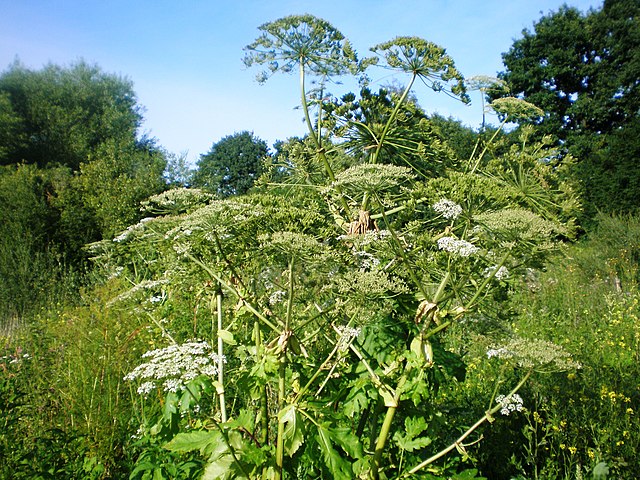From pv magazine Global
Hard carbons appear to be one of the most suitable candidates for anode materials for sodium-ion batteries because of their electrochemical performance and relative ease of production. This class of materials can be obtained from a variety of precursors, and the most ecologically sustainable route is the synthesis from biomass.
Researchers from Moscow State University (MSU) and Skolkovo Institute of Science and Technology (Skoltech) have developed a high-quality anode material from an unlikely source – Heracleum sosnowskyi, a highly invasive plant, which is dangerous for humans and can cause skin burns but produces a large amount of green biomass in a short time.
“We thought, wouldn’t it be fun to take something as nasty and objectionable as hogweed and make something useful out of it,” said co-author Zoya Bobyleva of Lomonosov Moscow State University. “The thing about hard carbon materials, used in sodium-ion battery anodes, is you can make them from biomass of virtually any origin. No one has considered hogweed before. But it turned out pretty well.”
The hard carbon produced by the MSU-Skoltech team exhibited a Coulombic efficiency of 87%, which is on par with the best reported results for hard carbons synthesized from other raw materials. As for the energy storage capacity, at about 260 mAh/g, the material falls short of the best results reported elsewhere — around 300 mAh/g. In addition, it demonstrated capacity retention of 95% after 100 charge-discharge cycles in sodium half-cells.
In “Sosnowskyi Hogweed-Based Hard Carbons for Sodium-Ion Batteries,” which was recently published in Batteries, the researchers proposed a simple synthesis method that includes the pretreatment stage and further carbonization at 1,300 C. The new anode was demonstrated in full sodium-ion cells with NASICON-type Na3V2(PO4)3 cathode material.
This content is protected by copyright and may not be reused. If you want to cooperate with us and would like to reuse some of our content, please contact: editors@pv-magazine.com.









By submitting this form you agree to pv magazine using your data for the purposes of publishing your comment.
Your personal data will only be disclosed or otherwise transmitted to third parties for the purposes of spam filtering or if this is necessary for technical maintenance of the website. Any other transfer to third parties will not take place unless this is justified on the basis of applicable data protection regulations or if pv magazine is legally obliged to do so.
You may revoke this consent at any time with effect for the future, in which case your personal data will be deleted immediately. Otherwise, your data will be deleted if pv magazine has processed your request or the purpose of data storage is fulfilled.
Further information on data privacy can be found in our Data Protection Policy.